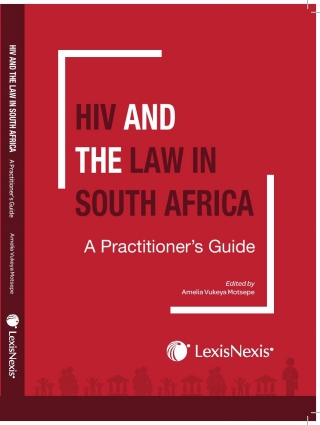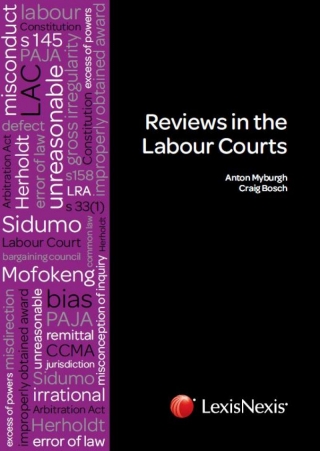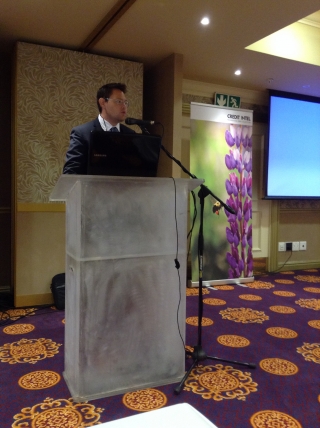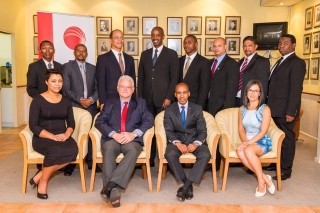The benefits of selling or buying on auction
The benefits of selling or buying on auction
The misconceptions that auctions are reserved for distressed properties or that it is a hunting ground for bargains, is steadily being corrected as more and more people opt for the auction floor as opposed to traditional real estate channels. The auction process has seen much success in the property market for many years and selling on auction can realise more for your asset due to its competitive mechanism. It provides the seller with fair market related prices and creates opportunities for buyers to acquire property at a price they are comfortable with.
Then and now
Given the financial climate 10 years back, many property auctions occurred as a result of company closures or liquidations where the creditors, appointed liquidators or trustees preferred to use the auction method to dispose of assets. Banking institutions have for some time been using the auction process to sell property successfully, based on its transparent and arms-length process and have achieved excellent results. These results are achieved through a larger pool of buyers and investors, with a low cost to creditors.
Qualified buyers
Normally, the lack of financing is a common hurdle to selling property out of hand or through a broker where a high percentage of deals may not be approved by finance companies or banks and therefore fail, leaving the seller without a result. Auctions open up the market for a seller on a cash and voetstoots basis with qualified buyers coming fully prepared to make property investments. While buyers may still obtain finance to pay for the property, making the purchase is not subject to them obtaining finance.
Voetstoots applies
Managing Director of Gillan & Veldhuizen PJ Veldhuizen says that Section 55 of the Consumer Protection Act – Consumer’s Right to Safe, Good Quality Goods - does not apply to goods bought on auction. “The basic purpose of the voetstoots clause is to protect the seller from any action by the buyer (on discovering any defects neither were not aware of when transacting) to jeopardize the actual sale contract. But it is important to note when the consumer’s rights, provided by Section 55, do not apply to a transaction.”
The price is right
The savvy seller or investor knows that the auction route is instrumental in achieving a better price where good demand exists, or producing a result for a seller where no demand exists. In particular, auctions are able to produce a sale where a seller requires urgent disposal while traditional marketing and sale methods have not been able to produce any significant result. Auctions show a higher confirmed sale rate than that shown by the traditional disposal methods.
Jonathan Smiedt, CEO of Claremart Auction Group, says that he has seen an ongoing increase in both in the number of properties on auction as well as in the demand for such investment opportunities. “It is a testament to the strength of the auction mechanism that it can out-perform the traditional market under both good and bad economic circumstances, and most notably has been responsible for the sale of many a property that has been listed too long on the market by estate agents incorrectly pricing sellers’ property at the outset.”
In short, you have a process that is strictly regulated, transparent, and offers instantaneous results, as well as value for money for the buyer and the seller who retain control, can make informed decisions and have the right to set their price at an auction.
Lights, camera, auction!
Local law firm Gillan & Veldhuizen announces affiliation with top global professional service firm network
On 22 June 2017, commercial and corporate law firm Gillan & Veldhuizen (G&V Inc.) announced their affiliation with IR Global, an international professional service network. This partnership makes G&V Inc. an exclusive IR Global member In South Africa, supplying commercial litigation services to all other members and outside users.
CEO PJ Veldhuizen says that this is a great achievement and acknowledgement of their good reputation and service offering. “It also gives us the opportunity to assist our existing clients with quality representation in many more jurisdictions, and improve our service by giving them access to additional advisory services outside our own immediate offering.”
IR Global is a service firm network that provides legal, accounting and financial advice to companies and individuals across 155 jurisdictions. Clients are able to build and grow their businesses through the many benefits IR Global affords its members and affiliates, with international exposure of their brand, access to niche skills across many practice areas and sectors, excellent service and support, and ongoing collaboration.
Gillan & Veldhuizen underwent a vigorous vetting process which included analysis of the firm’s reputation and rankings, and measuring feedback from local IR members and connections to their jurisdictions. The final step was a one-on-one meeting to discuss the protocols, ethos and expectations required.
Veldhuizen remarks that he sees the value in being part of a network of like-minded individuals and businesses that together are all powerful, supporting and complementing each other’s expertise through collaboration, co-operation and sharing of skills. “Here’s to going global!”
SASLAW celebrates its 20th Anniversary
This year, The South African Society for Labour Law (SASLAW) celebrates its 20th anniversary. We look back at the society’s illustrious history and the significant impact it has had in the labour law community in South Africa.
The South African Society for Labour Law (SASLAW) was established in June 1997 with the humble purpose – as SASLAW National President Shamima Gaibie says – of bringing people interested in labour law together.
Since then, the stature of the organisation has grown as has its aim of developing labour law both as a profession and an academic discipline. To accomplish this, SASLAW has four areas of activity: membership benefits, seminars and workshops, an annual conference and the Pro bono project.
Continuous learning
At the forefront of SASLAW’s strategy is developing and promoting the labour law profession. The society accomplishes this through regular seminars that are addressed by labour law experts and cover pertinent topics such “Monitoring employees' electronic communications - The diminished right to privacy” as well as “Privacy and Social Media”.
The highlight of SASLAW’s annual calendar is the annual conference which takes place in the fourth quarter of every year. This year, to mark the society’s 20th anniversary, the SASLAW 20th Annual Conference will take place at Sun City in tandem with the first African Labour Law Society Conference. The African Labour Law Society (ALLS) was established in 2016 to promote the labour law discipline as well as share labour law knowledge in Africa.
The conferences will run from 7 – 9 September 2017, with the ALLS conference being held on the 7th. seminar beginning proceedings on the seventh and the SASLAW conference taking place on the remaining two days. SASLAW is honoured to advise that Prof Sandra Fredman, FBA QC, Director at the Oxford Human Rights Hub, United Kingdom, Judge Raymond Zondo of the Constitutional Court of South Africa and Professor Dr Manfred Weiss, Goethe University, Frankfurt, Germany will be the three keynote speakers.
Fostering a new generation of labour law practitionersIn 2013, a decision was taken at National Level in SASLAW to develop the SASLAW Young Scholars society to generate innovative thinking on labour law issues among the younger generation of labour law practitioners. The YSS has been actively involved in spreading the SASLAW message both locally, with a number of events at a variety of tertiary institutions that offer legal studies, as well as internationally.
Pro Bono project
The SASLAW Pro Bono NPC project at the South African Labour Courts serves to deliver a quality advisory service and defined Labour Law legal services to those who otherwise do not have access to justice. The project provides legal services to those who are unable to afford legal counsel has met a very definite need within the community. To date, the programme has serviced over 17 000 clients and the number keeps growing.
Year on year, SASLAW becomes stronger thanks to the number of members who are involved in all aspects of Labour Law who join the society. SASLAW is only as strong as their loyal members and dedicated committees and a vote of thanks goes to them for their support throughout the years. The society looks forward to seeing what the next 20 years will hold and how these will enable them to influence the South African labour law community further.
27 11 431 1237
Protecting unregistered intellectual property contractually
What is the benefit in unregistered intellectual property?
The value in unregistered intellectual property, such as confidential information and trade secrets, is in keeping such information secret. The value is lost once the information is in the public domain. It is not like an invention that is protected by a registered patent once it is disclosed, or copyright that also enjoys protection against, inter alia, copying and adaptation once it has been reduced to a material form and made available to the public. A trade secret by definition needs to be kept out of the public domain in order for it to enjoy protection under the common law.
Why is a binding contract necessary?
It is advisable to ensure that every person or entity that has access to an organisation’s confidential information or trade secrets is bound contractually to keep such information confidential and not to disclose them to any third person, otherwise than as provided for in terms of the agreement with the owner of the information or trade secret. A binding contract will afford the owner of the information an additional cause of action or remedy under the law of contract (other than its rights and remedies under the common law) in the event that the information is:
- misappropriated;
- used; or
- disclosed,
in breach of the agreement between the parties.
Provisions that may be included in the confidentiality agreement
While the breach of an agreement only really provides the owner of the information with a claim against the person or entity that breached the provisions of the agreement, wide provisions can be inserted in the agreement (subject of course to consensus between the parties) to deal with:
- curtailing any potential further harm;
- specific performance; and
- the payment of damages.
The owner of the information can also require that it be indemnified against all harm, loss and damage that it suffers as a result of a breach of the agreement by the recipient of the information in question. While this does not assist the owner of the information for practical purposes, as the information will have in any event been disclosed and made available to unauthorised third parties, it does serve to improve the owner’s financial position.
While it is not a mandatory requirement for an agreement to protect confidential information or trade secrets need to be in writing, it is advisable that any agreement between parties that regulates the protection and non-disclosure be reduced to writing and signed by the parties. A written contract will prevent a situation from arising where the owner of the information is required to prove on a balance of probabilities that the agreement exists and what its terms are, see the case of Makate v Vodacom (Pty) Limited [2015] JOL 34657 (GJ). This case was heard in the High Court of South Africa, Gauteng Local Division, Johannesburg and more recently by the Constitutional Court.
If the written agreement also contains an “entire agreement” clause, the terms of the agreement between the parties will be limited to what is set out in the document itself and the parties will not be entitled to adduce any additional evidence in an attempt to show that other terms existed, or that it was agreed that the provisions of the agreement as contained in the written document could be deviated from.
By reducing an agreement to writing the owner of the information is entitled to the warranty that the recipient of the information is in fact authorised to enter into the agreement. Such an agreement would have assisted the plaintiff in the Makate case enormously. Although the High Court held that the plaintiff had proved the existence of an agreement on a balance of probabilities, it also found that the person who had concluded the agreement on the part of Vodacom, did not have the requisite authority to do so.
On appeal, in Makate v Vodacom (Pty) Limited [2016] JOL 35777 (CC), the Constitutional Court found on the facts that the person who had concluded the agreement on the part of Vodacom (a director and the head of product development within the organisation) did in fact, have the ostensible authority to bind Vodacom, and therefore had ostensible authority to conclude the agreement with Makate.
Irrespective of the opposite findings by the two courts with regard to the authority to conclude contracts, both findings are significant from an intellectual property perspective, in that, they highlight the fundamental importance of proving that a valid agreement exists between the parties in respect of the exploitation of the idea and the extent to which the parties share in such exploitation. This reiterates the fact that there is no protection in an idea on its own – only the manifestation of that idea.
Whilst the agreement in this case related to an idea and not a confidentiality or non-disclosure agreement per se, the principle remains the same.
For the reasons set out above, any third party that will be given access to, or could conceivably gain access to, confidential information or trade secrets for any reason whatsoever, should be bound in writing to keep such information or trade secrets confidential and not to disclose this or only to disclose it in defined, limited circumstances set out in the written agreement concluded between the parties. This includes all employees, service providers, consultants and professional advisers (unless the latter are required by virtue of their profession to keep information confidential).
LexisNexis South Africa, in partnership with Norton Rose Fulbright, has produced the online solution, Practical Guidance Intellectual Property, in order to assist companies to navigate the law pertaining to this intangible yet highly valuable form of asset or property. This web based solution provides practical, up-to-date guidance for all intellectual property needs and offers useful templates, guidance notes, checklists and other practical aids and resources to assist in making informed and accurate decisions. For more information, visit: http://practicalguidance.lexisnexis.co.za/index.php/practice-areas/intellectual-property
Legal Guide Released to Tackle HIV/AIDS Stigma and Discrimination
South Africa has over the years developed a progressive legal and policy framework to protect human rights for all people living with HIV and AIDS. However continued stigma and discrimination often remain barriers to accessing treatment and efforts to fight the epidemic must be accompanied by a solid commitment to respecting the human rights enshrined in our Constitution.
A new handbook, published by LexisNexis South Africa, aims to facilitate easy access to the law relating to HIV and AIDS in South Africa. This, it is hoped, will aid in fighting injustice against people living with and affected by HIV and AIDS. HIV and the Law in South Africa: A Practitioner’s Guide includes extensive contributions from a number of the foremost practitioners and theorists in the field. It is edited by leading law, public health and human rights champion, Amelia Vukeya Motsepe.
While aimed at legal practitioners working in this crucial area of public law, the book’s simple, user-friendly approach is also set to appeal to NGOs, charities, healthcare professionals and students of law and medicine.
Writing the foreword for HIV and the Law in South Africa: A Practitioner’s Guide, Constitutional Court of South Africa Justice Edwin Cameron said lawyers had played a significant role in protecting and promoting human rights and justice for people living with HIV and those affected. “Clients with HIV turn to lawyers when their privacy has been violated, their bodies bruised, their rights trampled on, their medical needs denied. Serving these clients effectively demands knowledge of areas of law that probably remain unfamiliar to many lawyers, particularly those in private practice,” he said.
Moreover, the South African legal fraternity’s growing culture of pro bono work now sees attorneys supplementing standard commercial work with human rights volunteerism in which they fight against injustice and inequality on behalf of the vulnerable within society. This means that in order to promote transformation in this space, the legal profession, including the judiciary, must be suitably trained and empowered around human rights related issues pertaining to HIV/AIDS.
HIV and the Law in South Africa: A Practitioner’s Guide aims to help role-players navigate this complex terrain, through a comprehensive taxonomy covering: Constitutional, Legislative and Policy Framework on HIV in South Africa; HIV Testing, Confidentiality and Informed Consent; Access to Health Care Services for People Living with HIV; The Management of HIV in the Workplace; Insurance Law and HIV; Social Grants (Support) for People Living with HIV; Women and HIV: Protecting the Health and Rights of Women and Girls; Children and HIV: Safeguarding the Rights and Interests of Children; The Rights of Inmates Living with HIV: Access to Treatment and Prevention; Access to health Care For Foreign Nationals; Wrongful Transmission of HIV: Criminal and Civil law Perspective; and The Science and Medicine of HIV. The book is supported by LexisNexis South Africa in line with the company’s global purpose of helping clients to uphold the Rule of Law.
Publication of the guide was also made possible through support from the M.A.C AIDS Fund Leadership Initiative at Columbia University, in collaboration with the University of California and Los Angeles, the Human Sciences Research Council of South Africa, HIVOS People Unlimited Collaborative Funds for Leadership and HIV Prevention Programme, as well as other partners in South Africa.
Editor Motsepe and LexisNexis South Africa will donate a portion of royalties from sales of the book to Positive Women’s Network South Africa, which is active in the fight against HIV/AIDS in South Africa.
HIV and The Law In South Africa: A Practitioner’s Guide [ISBN 9780409127829] can be purchased in print or as an e-book at a cost of R 500.00 inclusive of VAT and excluding delivery. It is available through the LexisNexis online bookstore at https://store.lexisnexis.co.za/categories/law/labour-law-131/hiv-and-the-law-in-south-africa-a-practitioners-guide-skuZASKUPG2173
Invaluable Book Released for Labour Law Practitioners
The Labour Court roll is dominated by review applications. A review application is the result of a party’s unhappiness with the award from the CCMA or bargaining council. The disgruntled party’s recourse is to launch an application in the Labour Court for the review of the award.
A new legal title from LexisNexis South Africa addresses these proceedings. Reviews in the Labour Courts provides excellent guidance for labour practitioners and is a must-have manual for all labour lawyers, advocates, judges, CCMA commissioners, bargaining council arbitrators, unions, HR/IR practitioners, in-house counsel, lecturers and post-graduate students. The authors are two of South Africa’s leading labour law advocates, Anton Myburgh SC and Craig Bosch.
The Constitutional Court, in the leading judgment of Sidumo, set out the test on review: “Is the decision reached by the commissioner one that a reasonable decision-maker could not reach.” Whilst the ‘Sidumo test’ appeared narrow, the Constitutional Court found that CCMA awards constitute administrative action and so the constitutional standard of reasonableness suffuses Section 145 of the Labour Relations Act. The result is a massive body of case law that continues to grow, making it difficult for busy practitioners to keep pace.
In his foreword to Reviews in the Labour Courts, Honourable Justice John Murphy said Reviews in the Labour Courts would serve as a practioner’s manual. “Every now and then a law book is written that fills a notable gap in the bookshelves of practising lawyers. This is such a book,” he said. “The arguments are meticulously researched, logically presented and practically relevant. In that way, in addition to its value as a scholarly work, Reviews in the Labour Courts will serve as a practitioner’s manual. The practice of labour law before the labour courts will profit immensely from practitioners embracing the practical teaching of this seminal work.”
Reviews in the Labour Courts will be launched at the SASLAW Annual Conference in Johannesburg on 22 July 2016 and is available through the LexisNexis online bookstore https://store.lexisnexis.co.za/categories/products/reviews-in-the-labour-courts-skuZASKU9780409044850/details at a cost of R800.00 inclusive of VAT and excluding delivery.
About the Authors
Anton Myburgh, BJuris LLB (UPE): Anton is a senior counsel at the Johannesburg Bar (Sandton); adjunct professor of law at NMMU; past national president of SASLAW; sometime acting judge of the Labour Court.
Craig Bosch, BA LLB (Stell) LLM (UCT): Craig is an advocate at the Cape Bar; research associate at NMMU; former senior lecturer in labour law at UWC, former senior commissioner of the CCMA and bargaining council panellist.
New law sees many debt collectors either close down or face significant financial difficulty
Held on 18 February at Emperor’s Palace, Johannesburg, the Conference was attended by members of First National Bank, Nedbank, PASA, attorneys’ firms, the Consumer Profile Bureau and many others. Also in attendance were the Banking Ombudsman, Clive Pillay and Credit Intel Key Accounts Manager, Bennett Baloyi.
With each passing day, the debt collection industry awaits the promulgation of the notorious National Credit Amendment Bill; most notable for a proposed ban on the collection and sale of prescribed debt, which will see many debt collectors either close down completely or take significant financial knocks. Michael Shackleton spoke on the Bill and suggested that the proper implementation of the already existent National Credit Act would strike a fair balance between promoting the business of legal credit lenders and protecting debtors from unscrupulous lenders.
Shackleton also indicated that the NCAB will create greater regulation under which credit providers will have to operate, at a time when reduced regulation and the cutting of bureaucratic red tape is necessary to reduce unemployment and to cause small companies to thrive. Small companies are the engine of job creation in Gauteng.
Marina Short, CEO of the Consumer Profile Bureau, delivered an outstanding speech on regulatory data and the credit market. She is somewhat of an authority regarding credit and she genuinely provided valuable insights to all the attendees.
FutureSoft CEO, Peter Rafferty, spoke on the prescription of debt whilst advocate Hannelie Gray talked on emolument attachment orders.
Thav Reddy, Head of Compliance at Nedbank’s MFC division, educated attendees on how to manage the implementation of the Protection of Personal Information Act.
Marie Smit, Compliance Manager at PASA, suggested measures on how to increase the security of payments, something which is surely on the mind of all, considering the technological developments of the present day and the so-called “scam artists” living by fraudulent means within the Republic of South Africa.
Leon Townsend delivered an incredible and interactive speech concerning strategies to limit fraud. He is Executive Director at Censeo and a Certified Fraud Examiner. His organisation assists credit providers to assess which debtors to provide loans to by determining which prospective debtors are the most prone to commit fraud.
The conference was chaired by Credit Intel Senior Legal Executive Michael Shackleton, who is well known as a leading attorney in debt collection.
It was a highly educational and thought provoking Conference which Credit Intel was glad to be part of. Credit Intel prides itself on professional service and seeks to become the authoritative voice on debt collection in South Africa. Being invited to present and give inputs at Conferences such as these indicates that many people are turning to Credit Intel as an authority on debt collection.
LEGAL TRANSFORMATION PROJECT GIVES R 6m START-UP BOOST TO PDI ADVOCATES
Fifty newly qualified advocates, classified as previously disadvantaged individuals (PDIs), have been sponsored with technology and legal resources from content and technology solutions provider, LexisNexis® South Africa.
The LexisNexis South Africa Enterprise Development project is now entering its third year and has benefitted 124 PDI advocates in total since its inception in 2012, with an overall investment of R 6 million. The project aims to drive transformation of the legal profession by empowering PDI-owned and managed legal enterprises, including a number of women and advocates from the smaller Bars in South Africa. It is approved by the General Council of the Bar of South Africa.
The sponsorship, to the value of R52 000 each this year, takes the form of 12 months of free platinum access to the My LexisNexis online legal research tool, plus a laptop and a 3G data package. This enables legal professionals juggling busy schedules to conduct extensive legal research while on the go. It also significantly reduces their start-up costs.
During February LexisNexis handed over the sponsorship to 10 members of the Cape Bar and four members of the Eastern Cape Society of Advocates – Port Elizabeth. Handover ceremonies are also due to take place shortly for 10 recipients from the Pretoria Bar, 10 from Johannesburg, nine from Kwa-Zulu Natal, two from the Free State and five remaining from the Eastern Cape Bars of Grahamstown, Bhisho and Transkei. This year the recipients also include 23 woman advocates.
Anyone who would like more information about the LexisNexis Enterprise Development initiative can contact Neliswa Hlombe at LexisNexis on +27 (0) 31 268 3284 or This email address is being protected from spambots. You need JavaScript enabled to view it.
Consideration is given to candidates who: are previously disadvantaged individuals (PDI’s); are South African citizens; excel academically; are newly admitted members of the Bar and are attached to a chamber of advocates.
LexisNexis survey reveals changing landscape of SA’s small law firms
Increased investments in technology, coupled with shifting research trends and the challenges of keeping up to date with frequently changing legislation, are just some of the aspects characterising the small law firm in South Africa. This is according to a survey of more than 160 independent law firms, commissioned by leading content and technology solutions provider, LexisNexis South Africa.
The survey also reveals that smarter use of technology is seen as a key catalyst for growth by the overwhelming majority of these firms, with networking second and marketing and online services sharing a close third.
“Small law firms have recognised the need to adapt or be left behind by those who are able to use technology for business benefit. To survive in the competitive online content marketplace, they must know how to filter through information and conduct research quickly,” says Billy Last, CEO of LexisNexis South Africa.
“Online solutions can help them save time on research and add intelligence to information, which is increasingly important in a tough environment where companies need to cut down on research costs, yet still be more productive in their research efforts,” he adds.
The LexisNexis survey was carried out by an independent research firm in August 2014 with responses from lawyers and support staff in smaller law firms. LexisNexis data shows that of the 10,930 law firms in South Africa, with over 21,000 lawyers in total, more than three quarters are considered small firms of 1 to 10 fee earners mostly engaged in litigation, debt collecting and conveyancing. In countries such as the United States, United Kingdom and Australia the legal landscape is dominated by larger law firms, although they do have a sizeable small law market.
“The small law firm is a significant and evolving part of the South African legal landscape and characterised by a strong spirit of entrepreneurship. In our research to investigate what drives them and the unique challenges they face, we discovered passionate, dedicated lawyers who believe strongly in what they do and enjoy contributing to their own sphere of activity,” says Last.
Of the independent lawyers surveyed, just under half practise as sole practitioners (47.8%),while 37.4% were firms of one to two fee earners and the minority in boutique law firms or partnerships. The respondents had a wide range of experience, with the majority (68.2%) being experienced lawyers who had been practising law for five years or more, while 46.9% had been in their current small law practices for three years or less.
For most respondents (more than 80%), small law was a conscious and planned career decision. One in four lawyers specifically wanted to run their own business. Only a small percentage of the sample (1.7%) were in a small law firm due to dissatisfaction with large firms, while under 10% went this route because of a change in circumstance.
Technology and trends
The survey showed that most of the independent law firms are early adopters of change who recognise that technology will have a significant impact on their business. The majority (58%) view smarter use of technology and networking (42%) as the most important ways to grow their business. Seven out of ten reported they are increasing their investments into new technology and processes and are reviewing the way they access information, with a significant two thirds carrying out their legal research online.
Two thirds of the firms rated themselves as technologically sophisticated when it comes to using technology-enabled research tools, however the remaining third believed they were not very sophisticated in their approach. Six out of 10 of the small law practices cited word-of-mouth referrals as the most effective marketing tool to grow their businesses and over three quarters favoured face-to-face networking over online and social media.
Only one in ten smaller firms outsource their marketing, with more than two thirds carrying out in-house marketing. Social media adoption was low among smaller firms, but among those who are experimenting and innovating LinkedIn is seen as their main social media channel to grow their business, with Facebook as the next alternative.
Personal service, specialisation and attention to clients’ needs are seen as crucial to delivering the returns among small law firms. Furthermore, the need to evolve and adapt was recognised by 88% of the respondents.
In terms of their economic outlook, more than half had a stable business outlook and more than two thirds said their business was growing, although a significant 68% reported that it is harder to make a living out of law in the current climate. Optimism about the future and continued enjoyment of the practice of law were still highly evident, with 96% of the firms confident to very confident in their practices while 77% had plans to grow over the next five years.
There is the perception among a number of these independent firms that the Legal Practice Bill of 2012, promulgated into law on 22 September as the Legal Practice Act 28 of 2014, is problematic. Also of concern to them are regulations allowing non-legal practitioners to perform legal tasks such as conveyancing and estates, as this is seen to be eroding the work of smaller practices. There is also an underlying sentiment that the government is making it harder for small law firms to be competitive by over regulating, and that it could do more to actively support the small lawyer, especially Black-owned firms.
Small law firms share many of the business concerns of other small business owners, including cash flow, retaining and growing a client base, economic effects and being up to date with their profession. “However lawyers in this segment are still passionate about their careers, have often overcome difficulties to get where they are and see law as something more than just a job but rather a lifelong pursuit,” says Last, adding that a combination of wisdom in practice and a fresh approach to business marked the lawyers who participated in the survey.
In response to changing professional needs and technology developments in sectors such as small law, LexisNexis has introduced a spate of new platforms that enable legal and tax practitioners to search, sift and filter through the most up-to-date information quickly, efficiently and more cost effectively on various devices. An example is the LexisMobile loose-leaf app which provides access to legal content both on- and offline, with automatic updating of changes, advanced referencing and highlighting functionalities.
A previous LexisNexis study in 2010 found that South African legal professionals, like their peers overseas, demand more customised tools to help them manage increasing volumes of information in the workplace. At that time, 90% of legal professionals in South Africa said that not being able to access the right information at the right time wasted time and impeded productivity, and that their research took up so much of their time that sometimes they ended up not billing for all of it.
The full LexisNexis report, entitled The Changing Landscape of Independent Law in SA, can be downloaded at www.lexisnexis.co.za/pdf/LN_HEADLINE_REPORT_20_November.pdf
Practical Guidance In-house Adviser aims to enrich corporate legal teams
LexisNexis South Africa, a leading provider of content and technology solutions for the legal and professional markets, has released a ninth practice area in its intuitive Practical Guidance online solution.
Practical Guidance In-house Adviser aims to equip in-house legal counsel, risk managers, company secretaries and project managers with not only technical information, but also insight that better enables them to influence stakeholders and effectively manage teams. The solution’s extensive taxonomy covers seven main topics in critical areas such as Legal Resource Management for In-house Lawyers, Business Skills and Getting the Deal Through.
The Practical Guidance offering from LexisNexis is an online interface with dynamic search functionality linking users to guidance notes, commentary, legislation, case law, forms, precedents, checklists and other resources, all in one place and at their fingertips. Chantelle Maree, Practical Guidance manager at LexisNexis South Africa, said the new practice area would complement existing ones available for Business Law and Corporate Governance.
“Its content is authored in the UK, but tailored for the South African market by local authors, with additional practical aids such as business continuity plans, policy documents and electronic handbooks,” she says.
There are also anecdotes from global leaders, who share their experiences in creating legal teams, dealing with change and lessons learned.
Maree adds: “Practical Guidance has tremendous value especially among professionals and firms who might not have the time and resources to sift through reams of information in order to stay up to date with the latest legal developments and opinions.”
Included in the latest practice area are invaluable Doing Business Guides, which aim to make it effortless to conduct business in key global jurisdictions such as the United Kingdom, United States of America, Brazil, Canada, China and many others.
To date, nine Practical Guidance practice areas are available for Business Law, Labour, Labour Public Sector, Income Tax, VAT, Corporate Governance, Civil Procedure, Family Law and In-house Adviser. All content is written by experts in each field.
For more information on the Practical Guidance series, which is fully integrated with the MyLexisNexis deep research library, visit www.lexisnexis.co.za/practicalguidance.









